Honorary Senior Lecturers
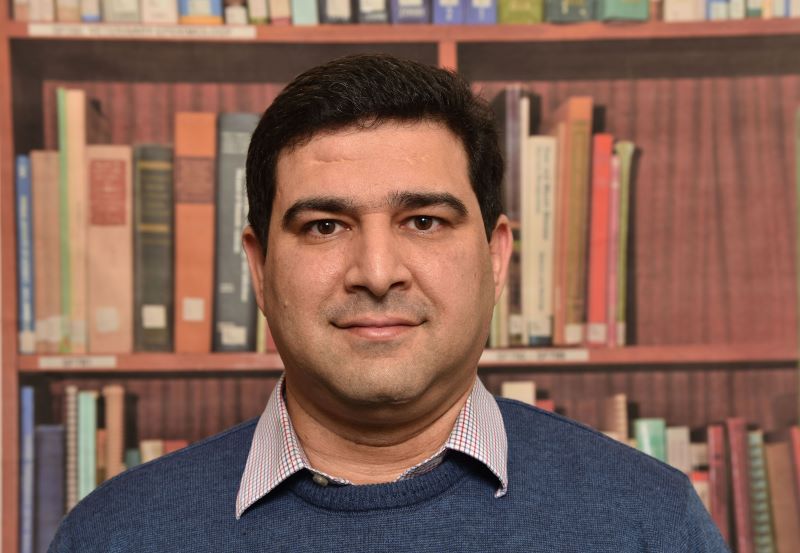
Masoud began working as a research fellow in genetic epidemiology at the University of Edinburgh in 2012 with much of his current research focussing on the biological mechanisms underlying animal health, welfare and sustainability.
During his time at Edinburgh University, he was based at the MRC Human Genetics Unit at the Institute of Genetics and Cancer, exploring the genetic underpinnings of various common diseases and complex traits such as blood lipids, BMI and height. He also developed novel models to detect common and rare genomics variants associated with quantitative diseases and phenotypes.
In 2017, he worked in the Centre for Clinical Brain Sciences (CCBS) at the University of Edinburgh, collaborating with researchers from a variety of disciplines to better understand the genetic and environmental factors that contribute to mental-health disorders and potential shared genetic and environmental factors between mental-health disorders and insulin resistance.
Masoud’s current research lies in developing innovative statistical and omics-based methods to better understand the genetic underlying of complex traits and common diseases. His research areas are focused on understanding the biological mechanisms underlying animal health, welfare, and emission production traits and using advanced machine learning techniques to develop predictive models for difficult-to-measure phenotypes based on multi-omics data such as genomics, transcriptomics and metabolomics data. He is working on developing and optimizing animal-breeding strategies to enhance the sustainability of livestock production.
Masoud is currently leading the Genetics Unit at AFBI and has developed and led the Northern Ireland Farm Animal Biobank (NIFAB) project, the foundation for data-driven solutions for sustainable livestock production, which leverages multi-omics data to further breeding research efforts in animals and plants.
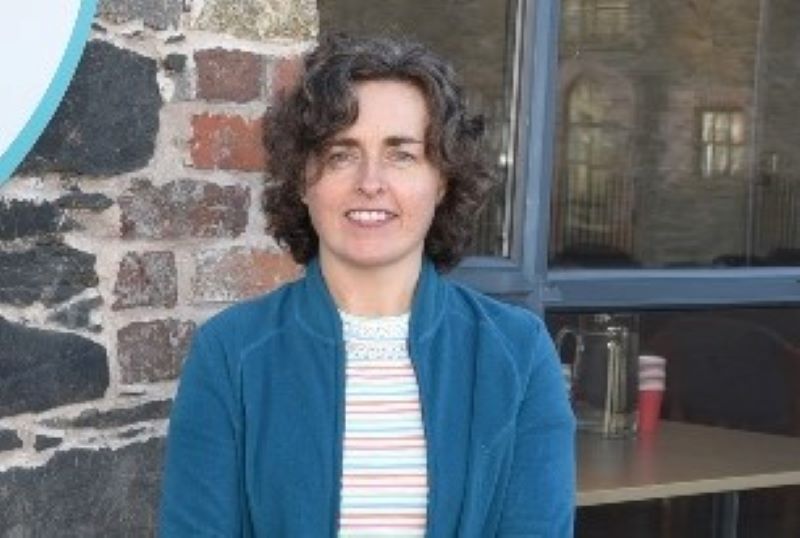
A project leader within the Monograstric Group, she has led several pieces of research relevant to the industry and been involved in collaborations at a national and international level.
She works closely with students and research colleagues in Queen's University and has published her work in peer-reviewed journals in addition to disseminating research findings to industry.
Her work on reducing nitrogen and phosphorus excretion from pig and poultry production has fed into revisions of key environmental legislation (ie. the Nutrient Action Programme and the UK Ammonia Inventory).
Elizabeth’s particular areas of research focus are to optimise nutrient utilisation of conventional and novel feed ingredients for monogastrics and to reduce the environmental impact of pig and poultry production in order to promote sustainability.

Archie is an applied agricultural entomologist. He obtained his PhD in biological control of crop pests in 1997 from Rothamsted Research and Keele University.
Since then, Archie has worked on biological control of pests in arable crops, targeting and monitoring of pesticides, integrated pest management, invasive flatworms, earthworms, forestry pests, and midges and mosquitoes as vectors of livestock and human diseases. His laboratory is responsible for plant-health surveillance and bee-health diagnoses in Northern Ireland.
Archie’s research falls within the categories of surveillance and monitoring methodologies for pest species, plant health and invasive species, pest-risk analyses, vector management, impact of pesticides/agricultural inputs on non-target organisms and integrated pest management and natural enemies. Working in a government institute means that his research is applied and problem-solving, which results in a diverse portfolio of activities and topics.
Archie is also an Honorary Fellow of the Royal Entomological Society.

He is involved in leading-edge, next-generation, nucleic-acid delivery technology, via involvement in pre-clinical and clinical developments, technology transfer, patent reviews and IP filings along with technology and scientific due diligence.
The proprietary Bio-Courier technology addresses the limitations of other RNA delivery technologies through hybridization of organic materials with inorganic bio-absorbable silicon, addressing the stability and targeting of therapies for rare diseases, cancers and other metabolic and inflammatory conditions.
In his early career, Michael received a First Class Honours degree in Microbiology and a PhD from Queen's University with a focus on host-pathogen interactions and immune responses.
His work to date has covered a broad range of human and veterinary pathogens including tuberculosis, influenza, SARS-CoV-2 and alphaviruses. In 2009, he was appointed as the Head of Virology Branch at the Agri-Food and Biosciences Institute (AFBI) with responsibilities for an extensive, international, research collaboration portfolio, statutory diagnostic testing and disease emergency-response diagnostic preparedness (ISO17025).
Michael has had a long association with Queen's, involving many R&D collaborations, research-grant applications, supervision of PhD students and lecturing.
Michael’s research interests lie in the development and application of nucleic acid-based therapies (siRNA, miRNA and mRNA) for rare diseases, inflammatory diseases, infectious diseases, cancer therapies and protein replacement therapies.
Michael is an evaluator for a range of R&D grant-awarding bodies and is currently an Evaluator for Horizon Europe Framework Programme. He has been involved in government funded ,eta-analysis reviews for diagnostic-test specificity and sensitivity.
Michael also oversees SiSaf Ltd's health and safety for R&D, manufacturing and analytical laboratories and facilities.
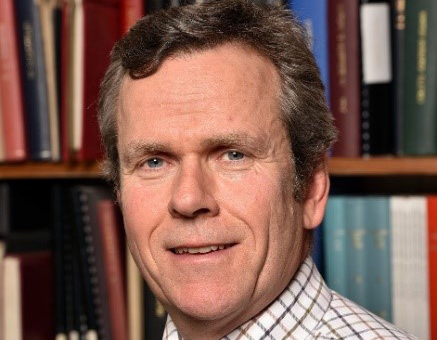
He is responsible for the grassland research platforms and related research programmes at the AFBI Hillsborough and Loughgall sites.
David graduated from QUB with a BAgr degree in Agriculture and a PhD on Grass/white clover sward dynamics. He then worked for QUB in turfgrass breeding research at AFBI Loughgall before taking up a Grassland Technologist post at CAFRE’s Greenmount Campus. After working in various teaching, compliance and policy roles within DAERA over the years, he returned to AFBI to undertake grassland research at AFBI Hillsborough in 2018.
David’s research interests include defoliation management of silage swards; the impact of flooding on grassland; the uptake of fertiliser N within multi-cut silage systems; overyielding in multispecies swards; plantain for dairy cow grazing and red clover swards for silage production. Current and proposed projects have a central theme of achieving smart, sustainable grassland which strives to achieve a balance of production efficiency and ecosystem service delivery. David is particularly focused on ensuring research outcomes deliver impact at farm level.
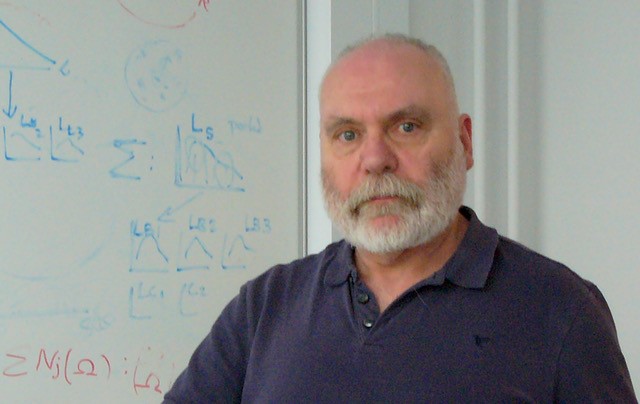
Keith's research focus is in information and causality theory for biological systems: explaining everything from cellular self-regulation to sentience, with applications in theories of pain, autonomous action, the physical foundations of living processes, origins of life and astrobiology, sources of biodiversity and the value of diversity, information and its causal powers.
Operating at the interface between biology, mathematics and philosophy, he takes a concretely physical science approach to deep questions of what life is (as a process) and how it works, especially in finding the minimum necessary and sufficient system properties for living, autonomous action and the construction of complex systems such as ecosystems and economies.
Keith played a pioneering role in the development of the size-spectrum theory of aquatic community composition with applications in the ‘Ecosystem Approach to Fisheries Management’, and animal ranging behaviour from first principles (leading to e.g. the Lévi flights and solutions to the ‘ideal free distribution’).
He is now building an information theory of causation, leading to new insights into cognition and sentience with applications in pain and ‘code biology’ and the physical explanation of living as an information process. Keith collaborates with scientists and philosophers in North America, South Africa and across Europe.
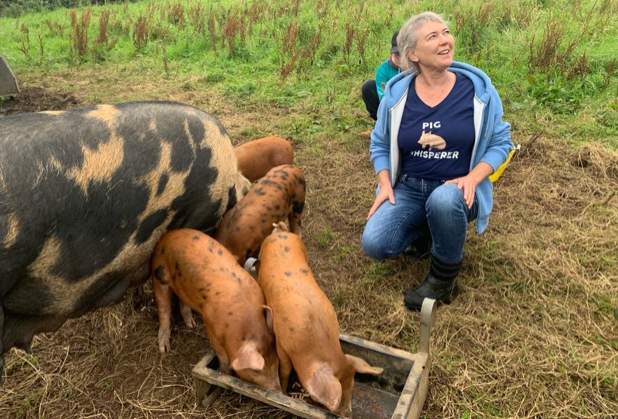
Jude is the Director of MACROSCOPIA Community Interest Company – sustainable development initiatives. She is a volunteer and a Board Member of Jubilee Farm (Community Benefit Society), Northern Ireland’s first community-owned farm practising social farming, community-supported agriculture and environmental engagement and is also a Volunteer at Pets as Therapy.
Jude’s research focuses on Social Farming, Anthropological perspectives and Ethno-veterinary medicine.
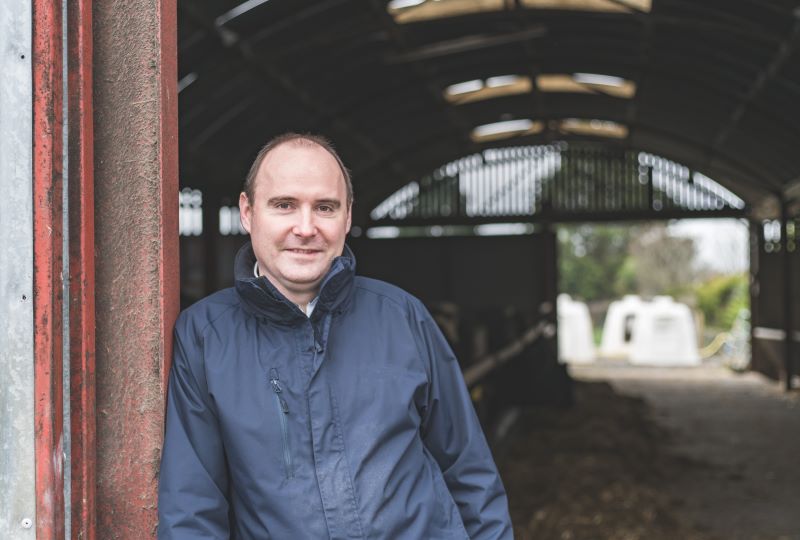
His role is focussed around consulting on disease investigation and preventative herd health.
Mark has ten years’ experience in First Opinion veterinary practice, then worked as a Technical Consultant for two international pharmaceutical companies and an international nutrition company.
His published research is on the effects of management strategy on performance and immune function of dairy cows, particularly during the transition and early lactation period.
Mark completed his veterinary degree and post-graduate certificate in University College Dublin, and his PhD in Queen's University Belfast. Mark is a Nuffield Farming Scholar, and a Past President of the North of Ireland Veterinary Association (NIVA) and the British Veterinary Association (BVA) Northern Ireland branch.
He is also an honorary veterinary lecturer for the College of Agriculture Food and Rural Enterprise (CAFRE), sits on the Animal Health Ireland (AHI)'s Calf Care Technical Working Group and is a reviewer for the Royal College of Veterinary Surgeons' inFOCUS journal.
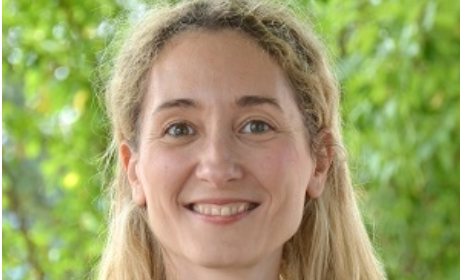
Martina joined Queen’s University Belfast in 2018 as Lecturer and later Senior Lecturer in the School of Biological Sciences, specialising in Economics of Agriculture, Food and Health. She led undergraduate teaching in Environmental Economics and supervised students from undergraduate to PhD level, contributing to interdisciplinary teaching and research.
Since earning her PhD in 2015, Martina has gained broad international experience, including as Senior Sustainability Advisor for Agribusiness at the International Trade Centre (a joint agency of the UN and WTO), Visiting Lecturer at the University of Geneva teaching Development Economics and Environmental and Resource Economics, Postdoctoral Research Fellow and Lecturer at ETH Zurich, and Max Weber Fellow at the European University Institute in Florence. In September 2024, she became Head of the Department of Food System Sciences at FiBL Switzerland.
Martina's research lies at the interface of economics, sustainability and food security, with emphasis on decision-making under risk, adoption and diffusion of agricultural innovations, sustainable value chains and climate adaptation in the agrifood sector. Her work frequently involves international and interdisciplinary collaboration and field research to inform evidence-based policy. She is passionate about translating science into impact, drawing on experience across academia, international organisations, high-level policy dialogue and field research in Europe and Sub-Saharan Africa.
Martina serves on several committees, editorial and management boards and participates in European and global policy and scientific networks.
